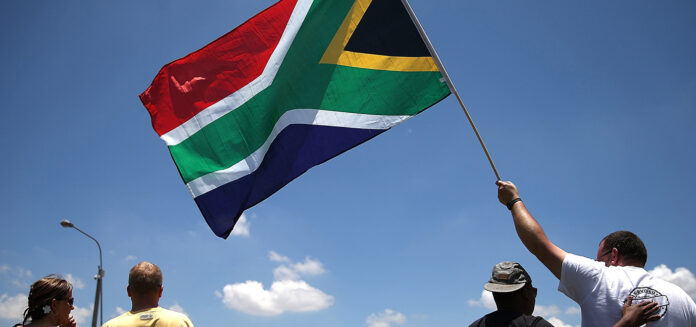The National Dialogue has elicited a mixed reaction from South Africa’s intelligentsia.
Independent analyst Ebrahim Fakir has described it as a “monumental waste of time and resources” because it won’t solve South Africa’s problems, which are “ineptitude, laxity, laziness and sloth”.
Sunday World had asked Fakir if he thought the dialogue would be useful.
Fakir said South Africa is facing a failure of politics and government, not a lack of dialogue. As a result, the national dialogue “is [a] futile and monumental waste of time (and resources)”.
Almost 10 days ago, President Cyril Ramaphosa announced that South Africans will engage in a dialogue starting in August.
He had diagnosed the problems this dialogue will seek to resolve as “poverty, unemployment and inequality”.
He added that these are “deep wounds that prevent us from reaching our full potential as a nation and as a country”.
“Millions of people are underemployed and unemployed. Many of those who work earn wages that cannot sustain them or their families.
“Crime, gender-based violence and corruption are prevalent across our society,” the president said.
But Fakir scoffed at the idea, saying these are not problems that can be solved by dialogue.
“South Africa is facing a failure of politics and a failure of government, not a lack of dialogue. Until this is addressed, nothing else matters.”
To expound on his point, Fakir said South Africans talked enough. “There are many forums for participation, almost all of which are compliance or tick-box exercises rather than substantive processes of engagement.
“We have parliament, provincial legislatures, the eight metros and 240-odd other municipalities, each with extensive participatory forums.”
He said the problems, such as “lack of oversight, accountability and responsiveness along with misplaced priorities, contradictory policies and poor government characterised by ineptitude, laxity, laziness and sloth” cannot be solved by dialogue. Asked why the government would have come up with the dialogue as a solution, he said he wouldn’t know. “I imagine they misdiagnosed the problem.”
But political analyst Levy Ndou argued in favour.
“The idea of a dialogue is to acknowledge that there are challenges that require all of us to come in and resolve. What they have done is to identify some of these challenges and try to make everyone aware of them, and then ask all of us to come together to provide a roadmap on how to resolve them.
“The idea is you don’t need to be a member of any political party, but you need to be a patriot to participate in providing a solution. It [the dialogue] might not be able to provide short-term solutions in the sense that some [suggested solutions] will require planning.
“But also, there are issues that, whether we discuss thoroughly or not thoroughly, they require our buy-in. If we talk about gender-based violence… That requires a guy to say, ‘I will not abuse any woman’.
“Government could be saying, ‘we have done all we could’ and therefore asking men to say, ‘I will not abuse any woman’.”
But also the government could be saying, ‘you have given us a mandate; you have given the responsibility to politicians, [and] politicians have not been able to deal with these issues’.
Ramaphosa announced the planning phase of the dialogue will be led by former Electoral Commission of SA chair Brigalia Bam, former Constitutional Court judge Justice Edwin Cameron, and Banyana Banyana coach Desiree Ellis.
Political commentator Professor Mcebisi Ndletshana said some of the problems that South Africa has can be solved outside of politics.
“Look, I can’t say I have seen the concept documents of the proposed national dialogue.
“I imagine the dialogue will hopefully identify a few solutions to the problems that we are facing.”
He said one of the problems was a strained sense of cohesion. “You’ve seen the white right wing in the form of Afri-Forum and Solidarity.
“You’ve also seen the results of a growing nationalism; now coloured nationalism. People are voting on race.”
He said these people had for some time felt they were not benefiting from the transformation. “Inequality is rising, so how do you solve this? To what extent do we have our wealthy contributing? Some solutions that could be sought may even require business to sacrifice certain things.”
He said complaints were that business was sitting on profits instead of investing in the economy.
“We’ve been talking a lot about all these precious metals that we have that need to be beneficiated,” he said. “That could be one way of dealing with unemployment.”
“So, you do require quite a great deal of openness and sincerity in this discussion,” he said, adding that would be his first measure of the success of the dialogue. “How sincere are people in identifying problems that relate to them… that they have caused?”
He said South Africans needed to realise that they have common problems, that if not resolved, would “lead to our collective demise”.
“There are national issues that we should be able to address outside of politics.”
On Thursday, local political party Labour Party, claimed it would interdict the dialogue from spending public funds until parliament approves its budget, currently estimated at a whopping R700-million.



